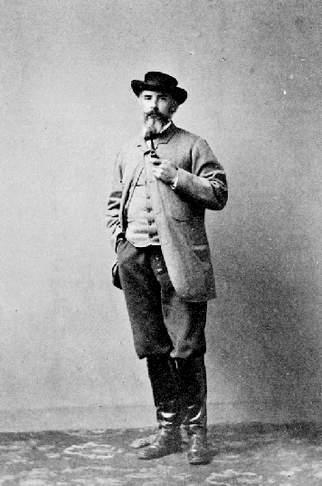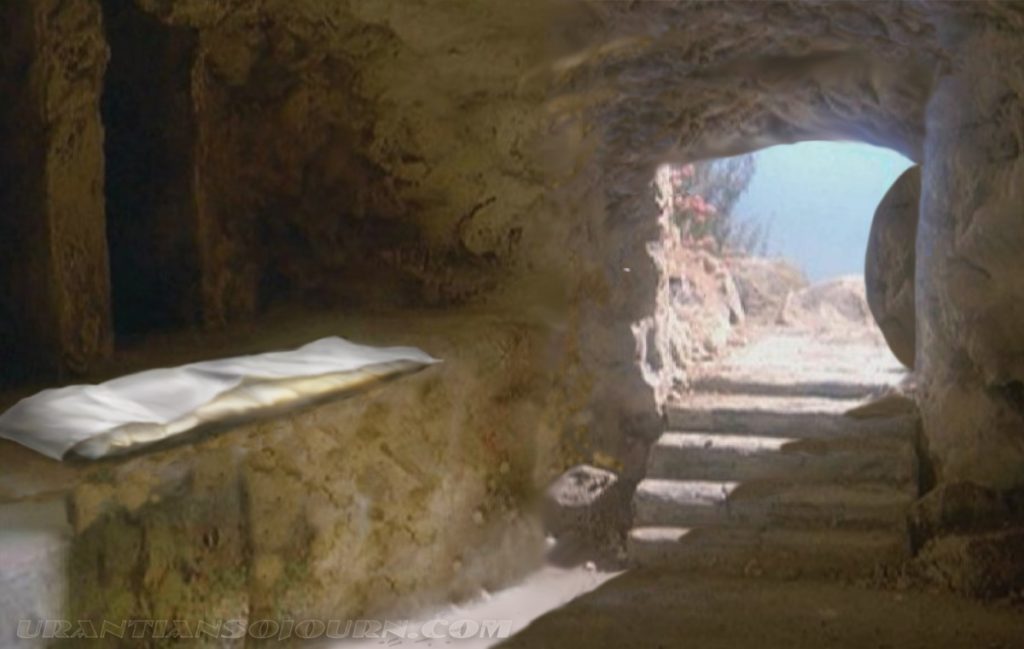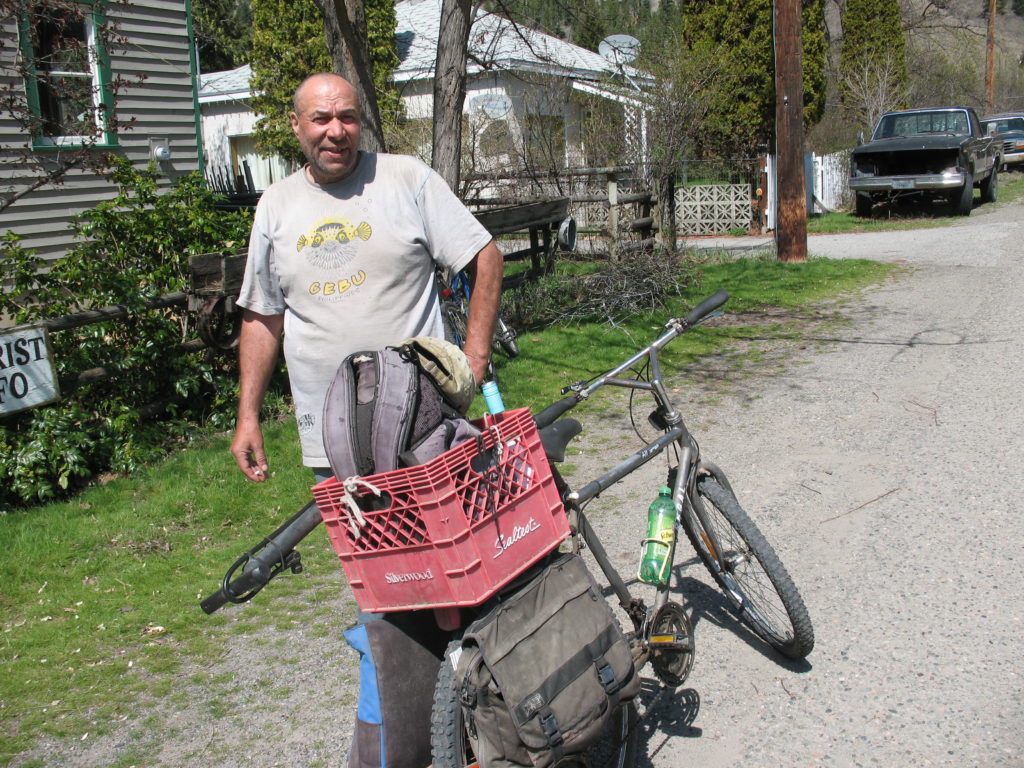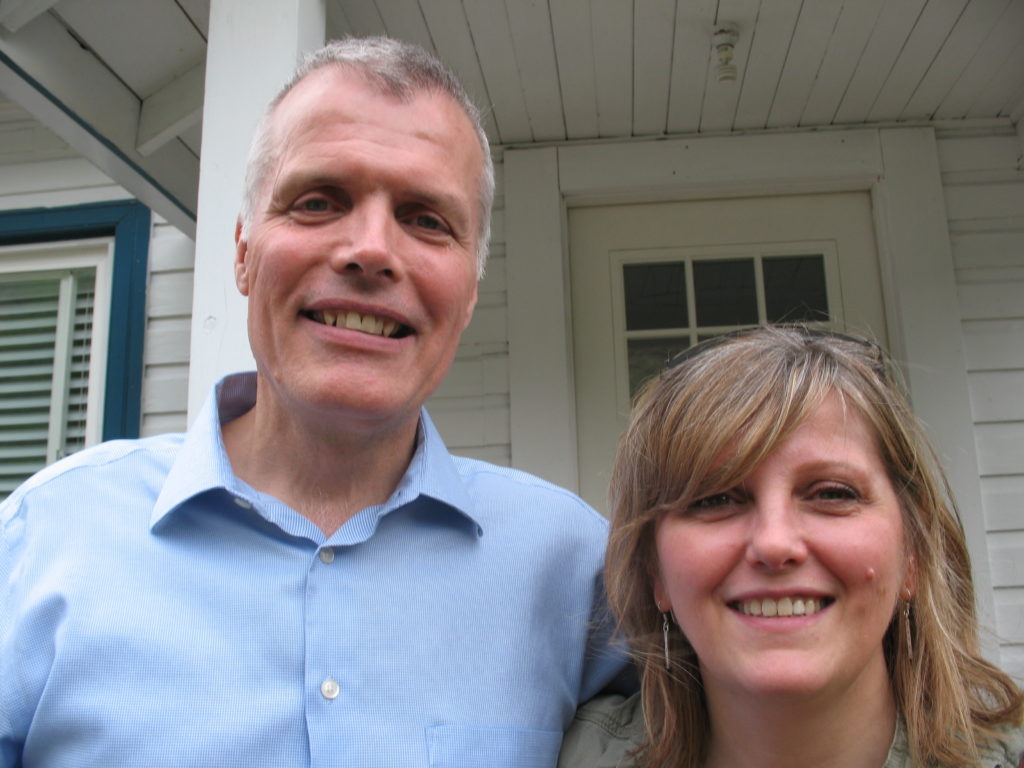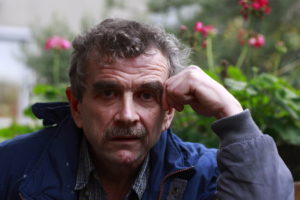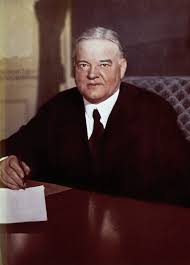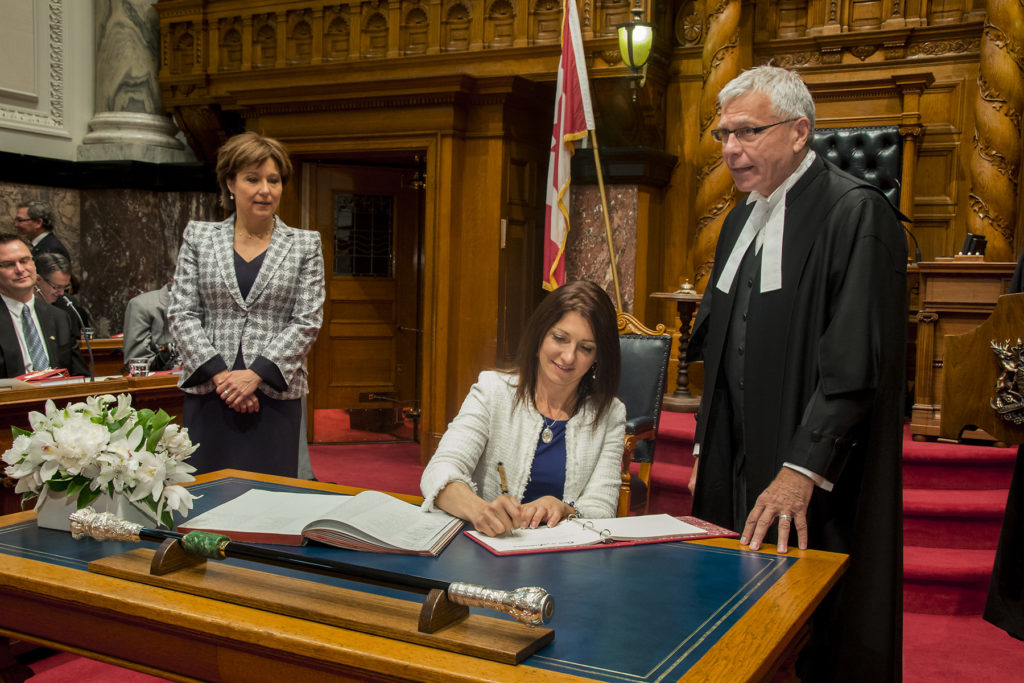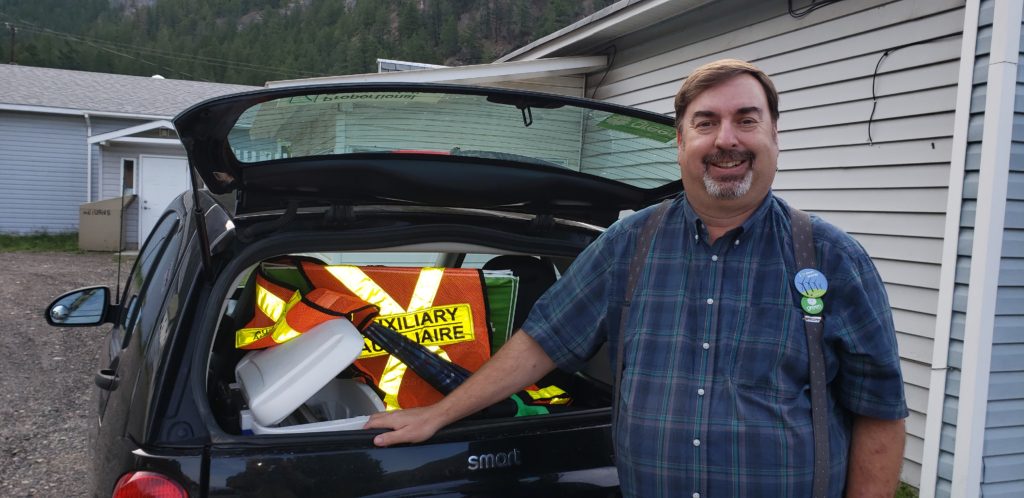
Over the past four years I’ve become increasingly disenchanted by the vast gulf between the positive, “sunny ways” statements of our outgoing government, and the lack of follow through. My awareness of this chasm has undoubtedly been sharpened by the words of former Rutgers University professor, Ashley Montagu. He wrote, “If you want to know what people believe, don’t read what they write, don’t ask what they believe, just observe what they do.”
With these thoughts swirling somewhere in the bowels of my subconscious mind, I noted the black Smart Car in the parking lot of the Hedley Seniors’ Centre last Wednesday. It belonged to Robert Mellalieu, local candidate for the Green Party. He had arrived from West Kelowna shortly after 7 am to meet with the early morning coffee group. Although people were already leaving when I showed up at 8, Rob immediately agreed to a one on one conversation.
Wondering if his words were supported by his choices and actions, I referred to the Smart Car. He appeared relaxed, but immediately fully engaged. “My wife also drives one,” he said, then added, “in summer we use a washline to dry clothes. In winter we have laundry hanging everywhere in the house.” That seemed to suggest he is about more than just talk. I was impressed by the discipline and commitment required to be here so early.
When I asked why he is running for the Green Party a second time, he jokingly said, “No one else wanted to. They’re all scared off by my competence.” He smiled, then said, “running for Green isn’t a joke anymore. People are beginning to understand there’s something to this.”
Rob doesn’t have the financial resources for a campaign like that of the major parties. He has demonstrated commitment and belief by putting in $1,000 of his own money, Another $1,500 has come from supporters. “People have given time to my campaign,” he said. “A couple of youths were a great help to me in summer. I also have a strong presence on social media.”
He is well known, especially in the Kelowna area. His public experience includes the Ambassador Program, Rotary, Chamber of Commerce, Big Brothers, a men’s recovery program and Toastmasters. In his work life he operates a business assisting people with computer issues.
Although he doesn’t have big league political experience, Rob does have a pretty decent grasp of issues. He’s keenly interested in economics. “One reason for running in this election is the long term economic issues,” he emphasized. In regard to the environment, he believes we’re making progress, “but it’s painfully slow. We need to make humungous changes weekly.” Current reports of glaciers melting and threatening communities, destruction of fisheries, rising ocean levels, and other impending calamities make it clear his concerns are based on reality.
“We need strong leaders,” he added. “Trudeau didn’t do it. He bought a pipeline. Politicians aren’t telling people the reality. Talk is cheap.”
I asked about Green Party leader, Elizabeth May. “According to polls she’s the most respected party leader in the country,” he responded with enthusiasm. “She has twice been voted Parliamentarian of the Year by fellow MPs.”
Rob seems genuinely optimistic about his chances of doing well in the vote. “It’s important we get a bigger slice of the political pie.” He paused, then added, “That will enable us to be more effective in shaping policies.”
I’m not ready for a Donald Trump type of shake up in Canada, but there’s certainly room for more integrity and greater trust. On one matter particularly close to my own heart, the Liberals have performed dismally. Justin Trudeau and Chrystia Freeland have boasted about supporting the rights of women and children everywhere. They have made no discernible effort, however, to retrieve the approximately 250 Canadian children who have been abducted to other countries by one of their parents.
Would Andrew Sheer be a better fit as Prime Minister? In spite of recent massive expressions of concern by youths regarding the environment, his response has been lackluster.
Should we be looking to the Green Party to lead us in a better direction? I don’t know, but Robert Mellalieu would like an opportunity to demonstrate they are a viable alternative. At this time the odds are not in their favour, but then, Greta Thunberg started the present worldwide protest movement as one 15 year old girl standing outside the Swedish parliament.

